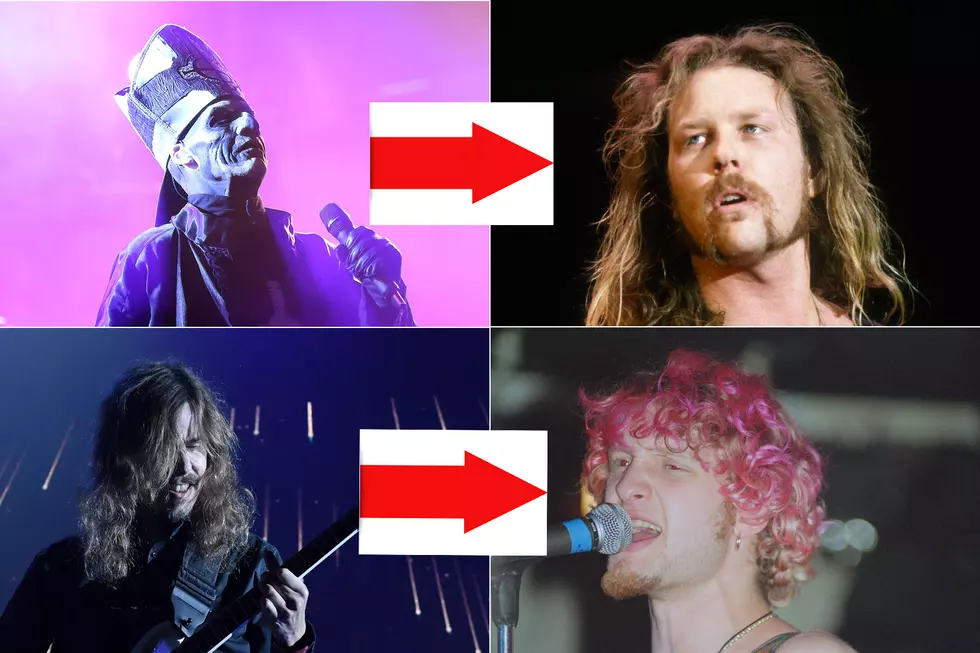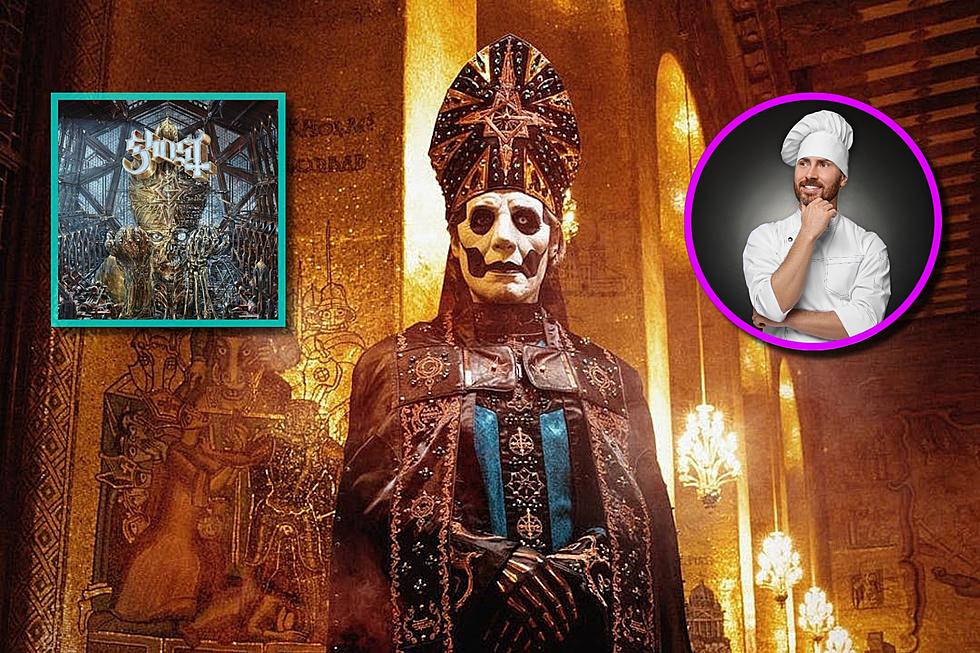
Ghost’s Wild ‘Prequelle’ Mixes Metal, Disco and Saxophones
If you’ve had any reservations about Ghost in the past, cast them aside, pop in Prequelle, and crank it to 11; this album will make you a believer.
With each Ghost record, there is an evolution of their image and sound and a progression of their storyline: Prequelle signifies an especially transformative time in the band's career. A long lineage of papal Eminence has been put to rest. Papa Emeritus I, II, and III are dead. At the same time, they've also been unmasked: Tobias Forge has publicly come out as the mastermind behind the Ghost mythos amidst a dramatic lawsuit filed by the "Nameless Ghouls" of albums past. These trying moments test whether an artist or band will burn out or come back stronger, and Ghost has taken the latter path, putting forth their best and strongest collection.
Prequelle delivers the most solid display of musicianship from the band yet. With influences that range from disco to the New Wave of British Heavy Metal, Ghost seem to have left the days of spooky "Scooby-Doo chase music" behind them; they really bring the chops here, while still injecting plenty of their signature sound. You certainly hear the inspiration drawn from bands such as Motley Crue, Saxon, KISS and even ABBA, but it still sounds unique: it's 100% Ghost.
On the surface, Prequelle is an album about the black plague, a time when death was always looming and humanity was nearly wiped from the globe. The ominous opening track sets the tone for this grim theme. Small voices eerily chant a beloved nursery rhyme, “Ring Around the Rosie,” a song that originated during the mid 1340’s as the epidemic ravaged humankind. However, the mood quickly changes as the band puts the “fun” in “funeral.” The creepy opener is followed by “Rats,” a feel-good metal zinger that makes you want to crack open a cold one and scream, “Let's Party!" Prequelle’s core message isn't solely about death, but rather celebrating life when death is imminent.
The first half of this album really showcases the band’s ability to shred, something they’ve never really been known for. Ghost get heavier with “Faith,” a vicious and unrelenting opus that is pure fucking metal through and through, complete with hair raising lead breaks and a demonic hook. Even power ballad “See the Light” offsets its crooning melody with a punchy chorus that’s rooted deeply in hard rock.
Instrumental piece “Maisma” summons the spirit of Uriah Heep, Arthur Brown, and, well, Clarence Clemons. The synthy jam is interrupted with an unexpected, blazing saxophone solo, proving that Ghost can see beyond the scope of camp and imagery, taking risks and truly mastering musical experimentation.
When Ghost are inevitably nominated a for a Grammy next year, “Dance Macabre” will likely be the song that earns them the coveted award for a second time. This is the song you’re going to hear played on the dance floor at weddings, sandwiched between “I Was Made For Loving You” and “You Shook Me All Night Long.” This is the song. Taking a cue from KISS, the band gets in touch with their disco side, but still keep it rock and roll. “Dance Macabre” is unapologetically pop rock, surely to bewitch even the most "kvlt" scenesters with an urge to dance in the moonlight. The catchy song is the most perfectly crafted anthem in the band’s entire catalog and one that certainly will play a major role in the band’s blossoming legacy.
Memento mori “Pro Memoria” brings the listener back to the sobering reality of our inevitable expiration. Over a somber ambience, the lyrics caution, “Don't you forget about dying, don't you forget about your friend Death, don't you forget that you will die.”
In keeping up with their ability to incite a spectrum of emotions, the band hypes the mood back up from depressing to morbidly upbeat with “Witch Image.” The grotesque chorus wails, “Someone's flesh is rotting tonight,” but is contrasted by the animated harmonies behind it. Once again, the band is able to somehow manage to make you want to party in the face of death. It’s a special kind of magic that is unique to Ghost.
“Helvetesfönster” is another instrumental, with a '70s vibe, but it also sounds medieval, a strange yet flawless anachronism. It's evident that Forge’s imagination is limitless. Combining his disparate influences is daring and weird, and very rarely is done as well as the diverse yet cohesive offerings on Prequelle.
“Life Eternal” brings the album to an epic conclusion. The power ballad’s angelic atmosphere crawls upward, growing in power with each verse, eventually breaking into a dramatic and robust cacophony. The choir of voices howling “forever” as the opus approaches the end, and Forge clearly aims for the band to have a legacy that lasts forever. As he told us in April, "If you ever want to play bigger places, you need to have records that sound like you're playing in big places." With at least two U.S. arena shows booked, this album provides more of the songs that very well may catapult them to the status that will allow them to headline those "big places" for years to come.
2018's Best Metal Albums... So Far
Check out our playlist of the Best Metal Songs of 2018... so far.
More From Loudwire









